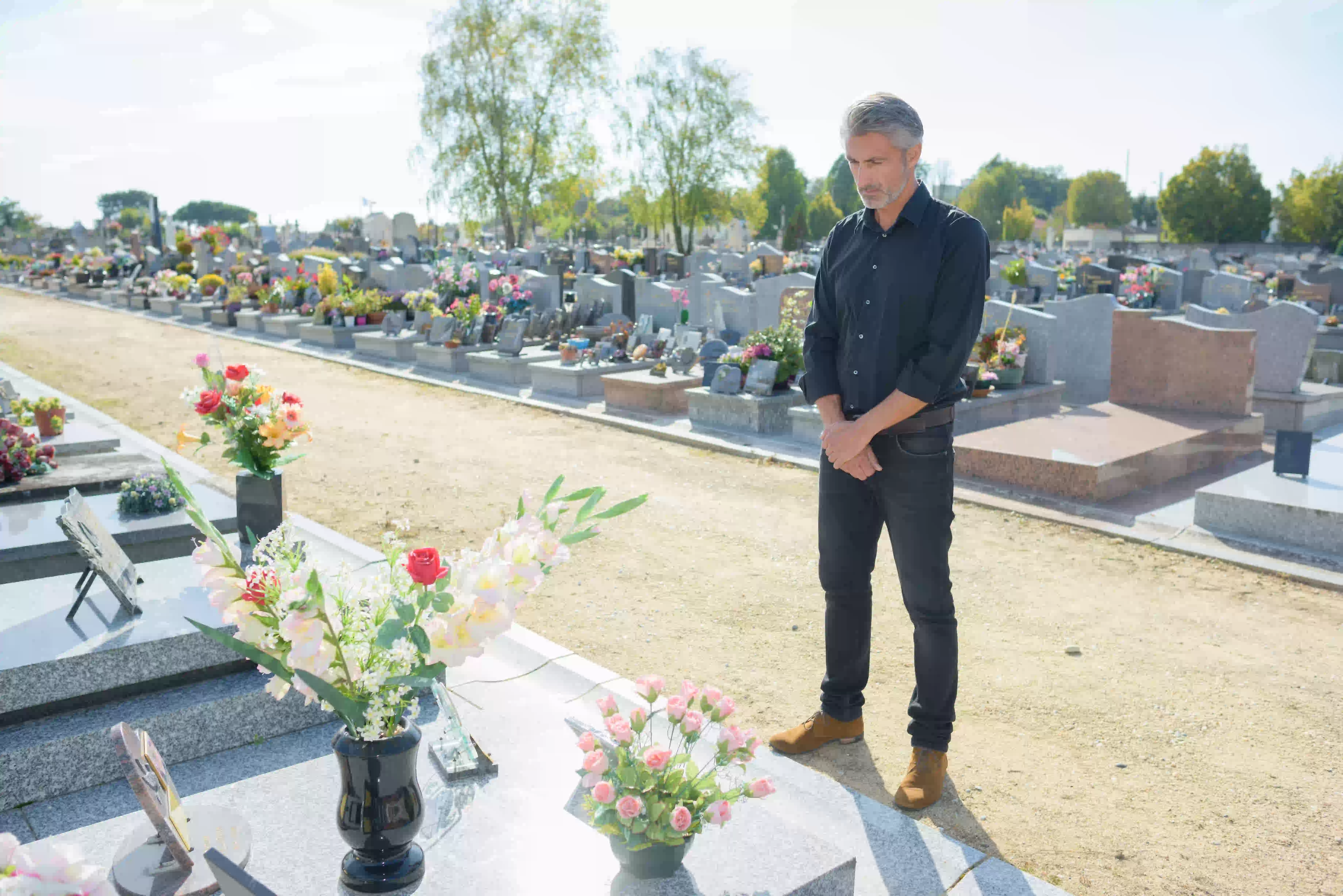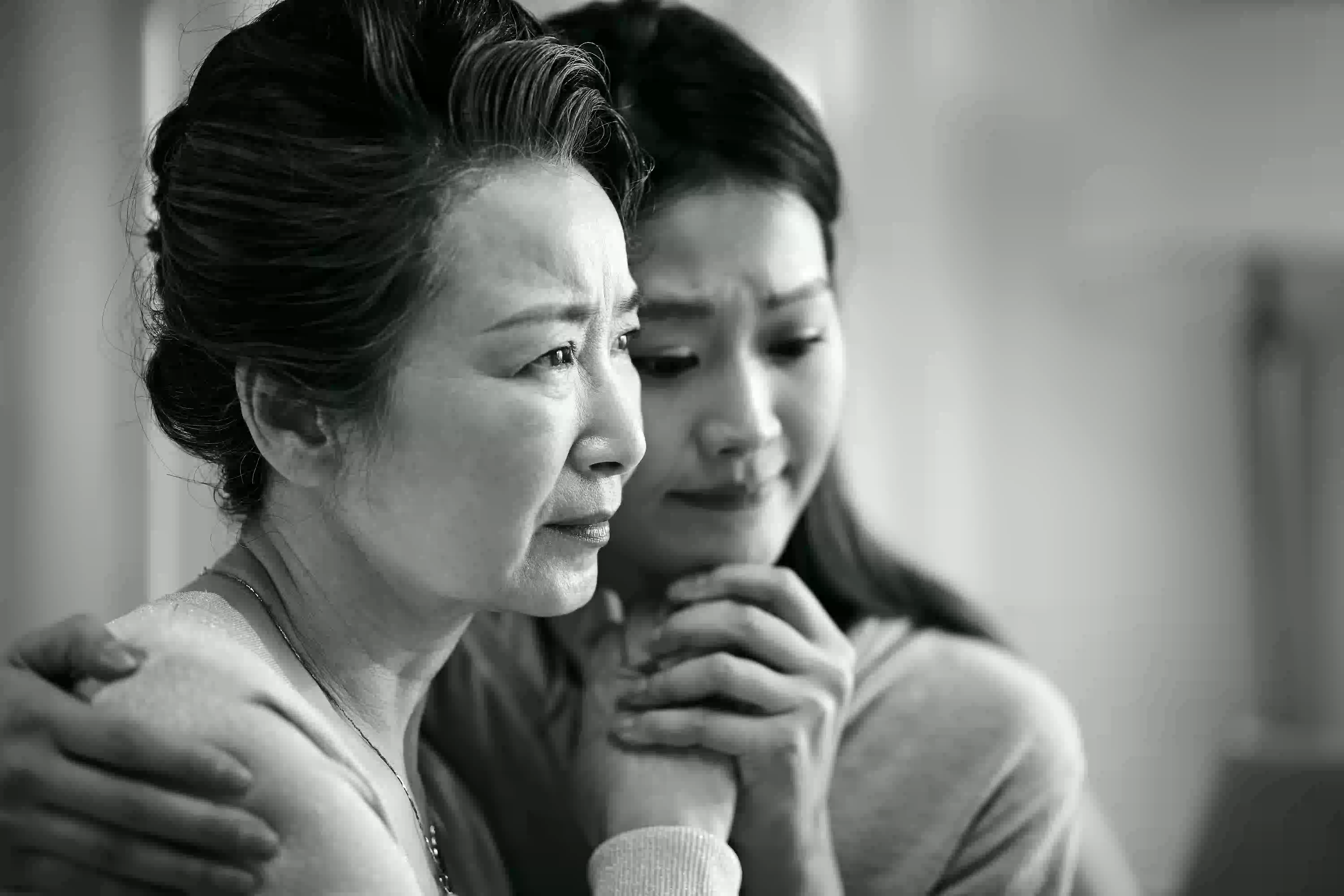Finding Comfort in Grief Support:
A Guide to Healing

Losing a parent is one of life’s most profound and challenging experiences. The depth of the loss can be overwhelming, causing many to feel lost and impacting every facet of life. While the pain is inevitable, finding the right support can make a significant difference in navigating this difficult journey. It is also normal to feel relief if your parent has been suffering, and not a reason to feel guilty. Understanding the importance of seeking help, including emotional support and coping mechanisms, can help you cope with the loss and begin healing.
Here are a few key topics we cover in this free Grace Fellowship Grief Support Guide:
- The Difficulties of Losing a Parent
- Embrace Grief Support Networks
- Navigate Family Dynamics Post-Loss
- Self-Care During the Grieving Process
- Honoring Your Parent Through Remembrance
- When Grief Becomes Complicated
- The Impact of Loss on Personal Identity
- Transitioning From Grief to Growth in Katy Texas
The Difficulties of Losing a Parent

A parent's death marks a pivotal moment in life, often accompanied by intense grief, sadness, and a sense of helplessness. This loss can bring about a range of emotions, from deep sorrow to anger, guilt, and even relief, especially if the parent has been suffering. It is important to acknowledge that it is normal to feel relief in such situations and not to feel guilty about these emotions. These feelings can be confusing and overwhelming.
Seeking support is essential not just for emotional well-being but also for overall well-being. Connecting with others who have experienced similar losses can provide comfort, understanding, and practical advice. Support systems can come in many forms, including friends, family, support groups, and professional counseling. Here is a brief, quick "tip sheet" that you might consider for your healing journey:
Grace Fellowship's "Tip Sheet" for Basic Grief Journey Steps

To begin your journey toward healing, consider the following practical steps:
- Acknowledge Your Grief: Accept that it is okay to feel the way you do.
- Reach Out for Help: Don’t hesitate to lean on friends, family, or professional services.
- Stay Connected: Engage in community activities or support groups to avoid isolation.
- Take Care of Yourself: Ensure you are eating well, getting enough sleep, and exercising.
Embrace Grief Support Networks

Discovering Local Bereavement Support Group
In Katy, Texas, there are numerous local resources available to support those grieving the loss of a parent. A local support group can provide a safe space to share your feelings and experiences with others who understand your pain. These groups often meet regularly and offer a sense of community and solidarity.
Churches such as Grace Fellowship offer free grief support groups, where members can come to share their experiences and find comfort in their faith and community. These groups are open to everyone, regardless of religious affiliation, and provide a compassionate environment for healing.
Online Grief Communities
For those who may not be able to attend in-person meetings, online grief communities offer an alternative. These platforms allow you to connect with others from the comfort of your home, offering forums, chat rooms, and virtual support groups where you can share your story and receive support.
One-on-One Grief Counseling
Individual counseling can be particularly beneficial for those who prefer a more private setting. A professional counselor can provide personalized support and coping strategies tailored to your specific needs and circumstances.
Navigate Family Dynamics Post-Loss

Supporting a Surviving Parent
Losing a parent affects not just the children but also the remaining parent. It’s important to support the remaining parent through shared activities while also taking care of your own needs. Open communication and shared activities can help maintain a strong bond during this challenging time.
Dealing With Conflicting Emotions Among Siblings
Siblings may react differently to the loss. Conflicting emotions can lead to misunderstandings or tension. Communicate openly and support each other, recognizing that everyone grieves in their way to maintain emotional health.
Self-Care During the Grieving Process

Establishing a Routine
Maintaining a routine can provide a sense of normalcy and stability. In Katy, there are several places where you can incorporate self-care into your routine, such as:
- Mary Jo Peckham Park: For walks and relaxation.
- LaCenterra at Cinco Ranch: For shopping and dining out.
- Katy Mills Mall: For a change of scenery and light entertainment.
Honoring Your Parent Through Remembrance

Creating a Memory Book or Grief Journal
Recording your memories and feelings in a memory book or grief journal can be a therapeutic way to honor your parent and process your emotions.
Continuing Family Traditions
Maintaining family traditions can keep your parent's memory alive and provide a sense of continuity and connection.
When Grief Becomes Complicated

Recognizing Prolonged Grief
If your grief feels overwhelming and persistent, you may be experiencing prolonged grief, which can hinder your ability to move forward. This form of grief, also known as complicated grief, is characterized by intense and prolonged feelings of sadness, emptiness, or yearning that extend beyond the expected mourning period. Recognizing these signs is crucial in seeking appropriate help and support.
Seeking Professional Help
Professional therapists or counselors can offer specialized support and interventions to help you navigate complicated grief. Through individual therapy sessions, you can explore your feelings, learn coping strategies, and work through unresolved issues related to your loss. Group therapy or support groups can also provide a sense of connection and understanding. Seeking professional help is a proactive step towards healing and finding peace amidst your grief. Remember, you don't have to navigate your grief journey alone, support is available to assist you.
The Impact of Loss on Personal Identity

Losing a parent can significantly impact your sense of self and your role within the family. This loss often triggers a period of self-reflection, leading you to reassess your identity and place in the world. The relationship with a parent is foundational, shaping many aspects of who you are, and their absence can create a void that challenges your understanding of yourself.
You may find yourself taking on new responsibilities within the family, altering your role and dynamics with siblings and other relatives. This shift can be daunting and transformative, requiring you to navigate new emotional and practical terrains. It's important to give yourself time to adjust to these changes and to seek support as you redefine your identity.
Transitioning From Grief to Growth in Katy, Texas

While grief is a deeply personal journey, it is possible to move from grief to growth. By seeking support, practicing self-care, and finding ways to honor your parent, you can begin to heal and find a new sense of purpose. Grace Fellowship is here for you, offering compassionate support and community as you navigate this difficult time.
- Explore further details on grief support by visiting our website at https://www.whatisgrace.org/care/griefshare.
- Reach out to Lisa Rodriguez at 281.646.0863 or LRodriguez@WhatIsGrace.org for additional assistance and guidance.
- Fill out our registration form on our website to join a grief support group.
Begin your journey towards rebuilding and discover solace within our compassionate community, ready to walk alongside you during this challenging time.
